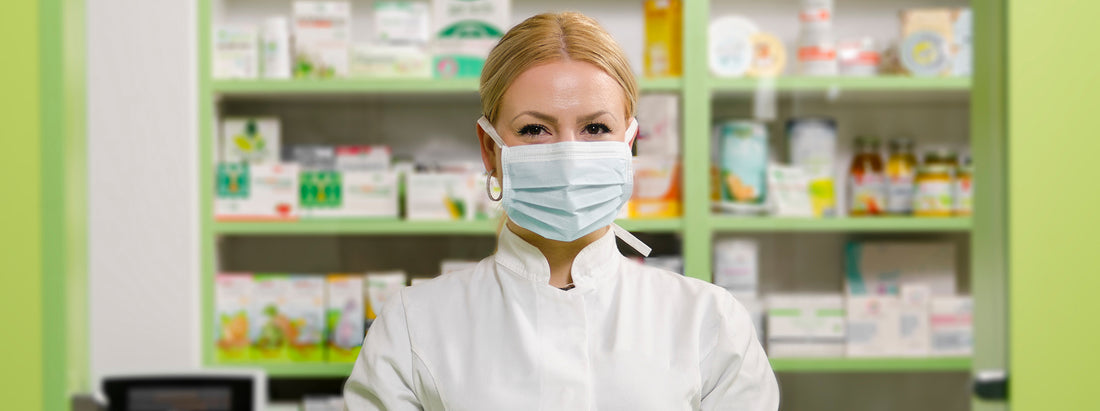Working at a family practice, in a hospital system, nursing home, or at a pharmacy has presented unique challenges lately. After waiting for promised Coronavirus test kits and further instructions on the latest lab shipping paperwork, guidelines, and logistics, the health care industry needs to prepare for the wave of increased testing demands. It is imperative to get results as accurately and quickly as possible. Does your facility have enough supplies, equipment, and medical grade cold storage boxes and chilling units for mounting numbers of test samples?
Each day the number of confirmed Covid-19 cases in the United States is growing. If you find you have an emergent need for additional cold storage space, keep in mind K2 Scientific has increased inventory levels and have solutions ready for immediate shipment. Expanded inventory fitting the CDC's guidelines for medical grade cold storage and freezer units can typically ship within 24-48 hours.
In an interview with a viral expert by Pharmacy.com, the need to assess testing and storage solutions for the current pandemic and future outbreaks is clear:
"Because there are Coronaviruses everywhere, the likelihood that we will have continued emergence … is definitely possible, if not inevitable." - Timothy Sheahan, PhD, assistant professor at the Gillings School of Global Public Health at the University of North Carolina Chapel Hill.
CDC requirements and recommendations
The CDC has issued guidelines on autopsy tissue samples that require temperatures of -70 to -86 degrees Fahrenheit (2-8 degrees Celsius) and storing specimens up to 72 hours after collection. It is also necessary to store extracted nucleic acid at -70 degrees Celsius or lower. Make sure all cold storage boxes, chilling, and freezer units can meet these requirements and locate suppliers now for replacements and additional equipment to avoid an emergency situation.
Patient swab samples being stored and shipped to a testing lab must be kept between 35 and 40 degrees Fahrenheit for no more than four days before it becomes necessary to either freeze them or throw them out. Based on these conditions and growing cases, the demand for onsite storage needs will increase as more local testing and drive-through pharmacy sites collect samples. Eventually, space will also be needed for vaccines.
When performing testing for COVID-19, the CDC primarily recommends swabbing the roof of the nasopharyngeal cavity (NP). Only use swabs with plastic shafts and synthetic fibers for PCR testing. Put them directly into sterile tubes with 2-3 ml of viral transport media.
Specimens should be collected as soon as possible, whenever the onset of symptoms may be discovered. Maintain proper infection control when collecting specimens, label them appropriately, and complete a CDC Form 50.34 for each one.
Look to the current edition of the International Air Transport Association (IATA) for instructions on packaging and shipping specimens for patients under investigation (PUI)s.
Standard precautions for handling samples are based on the knowledge that all body fluids, including blood, excretions (except sweat), mucous membranes, nonintact skin, and secretions, may transmit infectious agents. Best practices include hand washing, using laboratory coats, eye protection or face shields, gloves, and masks, depending on the risks for exposure.
Current testing capacity
On March 13, the FDA approved commercial tests from two companies, Roche pharmaceutical, and medical device-maker Thermo Fisher. They have the expertise in medical test construction and distribution to roll out 2 million tests almost immediately.
Recently, two of the largest diagnostic commercial labs, LabCorp and Quest Diagnostics, have begun conducting thousands of tests a day, increasing to thousands of tests per week by the end of March. The American Enterprise Institute's program estimates the total US testing capacity at just over 22,000 tests a day.
Since President Trump declared Covid-19 a national emergency, an infusion of funds and decreased regulation at the state and local level has begun.
With K2 Scientific's direct from the manufacturer pricing, we are ready to help you maintain additional medical grade cold storage and freezer units for the flood of test samples, supplies, and vaccines without breaking your budget or compromising quality at this critical time. Your specific environment determines the solutions.
A professional will recommend cold storage unit model numbers, including: K202GDR, K202SDR, K204GDR, K204SDR, K10GDR, K210SDR, K212GDR, K225GDR, K225SDR, K249GDR, K249SDR.
Consequences of delayed information
A lack of tests in January or February created a shortage of information on how many positive diagnoses are yet to come and how it will impact our hospital systems. As we gather more data, we need to explain to patients, consumers, and staff that the goal of mitigation measures is to decrease the number of infections at any given time by spacing them out or slowing them down. Exceeding US hospital staff, equipment, beds, and other resources could lead to more deaths.
Follow and share these recommendations:
- social distancing in public and private spaces
- canceling group events
- closing schools
- working remotely
- self-isolating for 14 days when exposed to the virus or starting to feel sick
- going to the hospital only if mild symptoms worsen to include chest pain or trouble breathing
- washing your hands frequently with soapy water for 20 seconds
- cleaning your phone, gadgets, and surfaces
- avoiding touching your face
- checking in on elderly or sick to offer supplies
Remember, people who don't have health insurance, paid sick leave, ready access to child care, or weakened immune systems have the most significant economic and physical risk. Until governments get the testing process better organized, and begin offering much needed economic stimulus packages, find ways to offer empathy or provide support.
For more information, visit the Center for Disease Control and Prevention (CDC) Frequently Asked Questions about Biosafety and COVID-19, and learn how to protect yourself.
